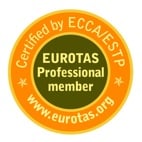
»LSD is a catalyst or amplifier of mental processes. If used correctly, it could become something like a microscope or telescope for psychotherapy..«
Stanislav Grof, pionir of psychedelic therapies
Training Facilitators
Mojca Studen, univ. dipl. fiz., transpersonal psychotherapist, CCHt, supervisor
Contakt: mojca.studen@velosimed.com
Lecturers include:
- Mojca Studen, univ. dipl. fiz., psychotherapist, CCHt, supervisor
- doc. dr. Maja Petrović Šteger
- Marko Vide, BA. pth.
- Mina Paš, M.D., integrativ psychotherapist
- dr. Snežana Brumec, univ. dipl. ekon.
- dr. Matej Černigoj, univ. dipl. psih.
- Tine Papič, Jungian Psychoanalyst, supervisor
Apply here....
Back to the description of the training program
Learning Hub
Seminar Topics and Facilitators

The Transpersonal Paradigm Supported by Neuroscientific Research (Mojca Studen)
- Exploring the extended map of the psyche, including perinatal and transpersonal dimensions.
- Understanding Grof’s Condensed Experience Systems (COEX) and their role in NOSC experiences.
- Examining neuroscientific models of consciousness and their implications for NOSC therapy.
- Integrating personality typologies with transpersonal psychology for dynamic therapeutic approaches.
- Developing trance states and “present-moment awareness” in the therapist.
- Practical exercise for centering the client, applicable in all phases of NOSC-related work.
Learning Hub

Extraordinary Human Experiences and Postmodern Spirituality (Snežana Brumec)
-

Exploratory Conversation (Matej Černigoj)
- Subjectivity, objectivity, and intersubjectivity.
- Discussion and conversation: two forms of communication based on the approach to subjectivity/objectivity.
- The ethos of exploration.
- Exploration instead of help; exploration as help.
- Setting the intention for exploration and establishing trust.
- Questioning as the fundamental act of exploration; sincere questions.
- Types of questions and positions of inquiry.
- The spontaneous flow of unfolding experiences and dissolving resistances.
- Recognizing and eliminating response patterns that narrow or close the interpersonal experiential space:
- Various forms of evaluation.
- Unjustified assumptions of shared reality.
- Advising, explaining, and interpreting.
- Adopting response patterns that open the interpersonal experiential space:
- Sincere questions (questions without hidden motives of conveying or persuading).
- Empathetic “staying with” (remaining with the client’s experience as it is, without attempting to influence it).
- Developing the ability to “bracket” (establishing a distance from reality):
- Suspending one’s own beliefs, values, and expectations.
- Suspending interpretations of what the client has shared.
- Recognizing exploratory fruitful points in what has been shared – discerning what to choose for further exploration and what to leave aside.
- Identifying the readiness of the other person to open up new areas of experience.
- Recognizing opportunities to pose more intimate questions.
- Identifying the direction of the conversational flow and assessing the possibilities and appropriateness of influencing it.
- Paralleling what has been said with the intention of opening new experiential areas.
- Recognizing important omissions in what has been shared and identifying appropriate moments to inquire about them.
- Tuning in to the client’s current emotional and vitality level, with an option to influence it.
- Adopting and expanding the client’s vocabulary.
- Assisting in raising awareness of the client’s implicit theories and incorporating them into the exploration process.
Theory of Exploratory Conversation
Creating Space:
Deepening Exploration
Back to the description of the training program

Anthropological and Cultural Perspectives on Consciousness (Maja Petrović Šteger)
This seminar will explore various anthropological perspectives on consciousness and mental health, with a focus on cultural practices related to non-ordinary states of consciousness (NOSC). Participants will engage with anthropological literature addressing topics such as:
- Transcultural Psychiatric Approaches to Mental Health
- Consciousness, Awareness Practices, and Ethnometaphysics
- Personal vs. Collective Consciousness
- Ritual Consciousness
- Understanding Consciousness in Practices of Shamanism, Neo-Shamanism, and Modern Transpersonal and Transgenerational Therapeutic Practices
The seminar will also delve into epistemologies of healing in non-ordinary states of consciousness, providing a broader understanding of the cultural and spiritual dimensions of NOSC.

Sublimativ meditation (Matej Černigoj)
- Action and Non-Action
- Forms of Meditation: Concentration, Observation, Being
- Pitfalls of Concentration and Observation-Based Meditation
- The Practice of Stillness and Its Variations
- Inner Effort: Recognition and Letting Go
- The Fundamental Principle of Non-Action: "Everything Is Done at the Beginning"
- The Concept and Principle of Sublimation
- Forms of Sublimation: Meditation as General Passive Sublimation
- Pure Consciousness as the Residue of Sublimative Purification of Impulses
Back to the description of the training program

Foundations of Supportive Work with Clients in NOSCs (Mojca Studen)
Indications and Contraindications for Therapeutic Work in NOSC:
Identifying when NOSC work is appropriate and when it may not be advisable.
Screening clients for potential risks and challenges
Cultivating a Safe yet Open Space for Empowerment: Creating an environment that fosters trust, safety, and openness for transformative experiences.
Managing Potential Challenges: Techniques for addressing emotional or psychological complications that arise during NOSC experiences.
Working with Transference and Projections: Using the metaphor of the "inner GPS" to navigate therapeutic dynamics and enhance client awareness.
Integration of the Holotropic Experience: Assisting clients in processing and integrating insights from their holotropic experiences into everyday life.
Supporting long-term psychological and spiritual growth.
Working with People in Spiritual Crisis (Mojca Studen)
- Understanding the process of spiritual awakening and its challenges, including spiritual crises.
- Exploring the fine line between transformative spiritual experiences and potential mental health issues.
- Identifying and categorizing various types of spiritual crises for appropriate intervention.
- Gaining insight into the dynamics, causes, and processes involved in spiritual crises.
- Techniques and considerations for supporting individuals experiencing intense and destabilizing NOSC.
- Differentiating harmful psychopathological conditions from transformative spiritual experiences.
- Highlighting the role of social, therapeutic, and community support systems for individuals in crisis.
- Practical strategies for providing support during spiritual crises.
- Tools and techniques for integrating transformative experiences after a crisis.
- Addressing immediate needs and creating a safe environment for recovery and growth.
The Architecture of Mental Disorders in Transpersonal Psychology (Mojca Studen)
The Architecture of Mental Disorders in Transpersonal Psychology
- Neurotic, Borderline, and Psychotic Disorders Through the Lens of Extended Cartography:
Understanding these disorders within the framework of Stanislav Grof’s expanded map of the psyche.Exploring their roots in biographical, perinatal, and transpersonal dimensions.
- Practical Therapeutic Approaches to Trauma Manifestation in NOSC:
Techniques for identifying and addressing trauma as it arises in non-ordinary states of consciousness.Tools for creating a safe therapeutic container to process and integrate trauma.
- Intrapsychic Processes of Ego Rebirth (Within the Framework of the 3D Enneagram):
Mapping the transformational journey of the self as viewed through the 3D Enneagram. Practical approaches to support clients in navigating ego dissolution and rebirth during therapeutic work.
Back to the description of the training program

Introduction to Activne Imagination (Tine Papič)
- Foundations of Analytical Psychology:
Core principles of Jungian psychoanalysis.
- Brief History of the Creation of the Red Book: Insights into the origin and significance of Carl Jung’s Red Book.
- Theory of Symbols and Images from the Perspective of Analytical Psychology and Psychoanalysis: Understanding the role of symbols and imagery in the psyche.
- Active Imagination as a Path to Self-Knowledge: Exploring active imagination as a technique for personal growth and self-discovery.
- Application of Active Imagination in Psychotherapeutic Processes: Practical use of active imagination in therapy to facilitate deeper client exploration.
- Active Imagination in Crisis Interventions: Utilizing the technique in acute or challenging psychological states.
- Contraindications for Using Active Imagination: Recognizing when this technique may not be suitable for clients.
- Practical Exercises in Using Active Imagination: Hands-on practice to develop proficiency in applying this technique effectively in therapeutic work.
:

Psychedelic Substances and Their Use (Marko Vide)
- Legislative Possibilities and Limitations for Psychedelic Therapy:
- Overview of legal frameworks governing the use of psychedelics in therapy in Slovenia and globally.
- Psychoactive Substances for Psychotherapeutic Work:
- List and characteristics of psychoactive substances used in therapeutic contexts.
- Pharmacological and Psychodynamic Effects of Psychedelics:
- Understanding the biochemical and psychological mechanisms of action of psychedelics.
- Comparison with Other Psychiatric Medications and Approaches:
- Differences and similarities between psychedelics and traditional psychiatric medications.
- The role of psychedelics in the treatment of mental health disorders compared to conventional psychiatric care.
The Concept of Harm Reduction in the Use of Psychotropic Substancesi (Mina Paš)
- Different Settings for the Use of Psychotropic Substances:
- Recreational, experimental, and instrumental use.
- Desired and undesired effects in each setting.
- Principles of Harm Reduction:
- Core principles and their application in the context of psychotropic substance use.
- Strategies for minimizing risks while supporting safe practices.
- Potential Health Complications and First Aid:
- Common medical risks associated with psychotropic substances.
- Basic first aid measures and interventions during adverse reactions.
- Substance Testing and Festival Work (Psycare):
- Laboratory testing of substances to ensure safety.
- Harm reduction practices in festival settings, including Psycare initiatives for supporting individuals experiencing challenges related to substance use.
The Concept of Harm Reduction in the Use of Psychotropic Substances

Support Mechanisms: Bodywork (Mojca Studen)
- Exploring how experiences in non-ordinary states of consciousness become internalized and influence personal development.
- Using body-centered approaches to regulate emotions, provide grounding, and support integration of NOSC experiences.
- Viewing physical and emotional symptoms as entry points for deeper therapeutic exploration.
- Reframing client challenges as opportunities for growth and self-discovery.
- Understanding and addressing different ego states in therapy to promote healing and integration.
Different Forms of Work in NOSC (Mojca Studen)
- Holotropic Breathwork (as a personal experience)
- Shadow Work According to Jung
- Somatic Experiencing and TRE (Tension & Trauma Releasing Exercises)
- The Key Method – Basics
- Meditation / Mindfulness and Transpersonal Techniques
- Hypnotherapy: Trance States as a Framework for Working with NOSC – Basics
- Art Therapy in Altered States of Consciousness – Basics
Integration of Experiences in Non-Ordinary States of Consciousness (NOSC) (Mojca Studen)
- Closing the NOSC Process:
- Techniques for effectively concluding transformative experiences in NOSC.
- Nonverbal Expression of NOSC Experiences:
- Encouraging immediate nonverbal expression (e.g., art, movement) to capture and process the experience.
- Preparing Clients for Return to Everyday Life:
- Supporting clients in reintegrating into daily routines while internalizing the insights from NOSC experiences in a constructive way.
- Basics of Trauma-Centered Neuro-Coaching:
- Utilizing neuro-coaching principles to address trauma and enhance resilience following NOSC experiences.
- Process Work:
- Engaging in dynamic, experiential approaches to integrate and resolve NOSC-related challenges.
- Working with Ego States – Basics:
- Identifying and addressing ego states to support integration and self-awareness.
- Working with the Shadow – Basics:
- Exploring and integrating shadow aspects of the psyche for deeper healing and transformation.
Back to the description of the training program
Evaluation of the Training Program
Upon successful completion of the training, participants will receive a certificate from SFU Ljubljana confirming their participation in the program Supportive Counseling and Psychotherapeutic Work with Non-Ordinary States of Consciousness and the total number of completed hours (273 hours).